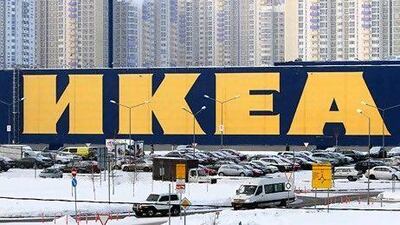It may have taken 18 years from application to admission but the day is rapidly approaching when Russia will join the World Trade Organisation (WTO).
President Vladimir Putin signed the official documents a few weeks back, they were ratified by the Duma and before the month is out the WTO will welcome its 156th member.
So, celebrations all around. The ninth-biggest economy in the world, a member of the elite investment category of Bric countries (the others being Brazil, India and China) and a leading player in the international energy business, Russia is to join the global commercial mainstream.
Membership of the WTO confers a certain seal of approval on its participants. The organisation dates back (in slightly different form, the General Agreement of Tariffs and Trade, or Gatt) to 1948, and then the United States had virtual economic hegemony over the rest of the world.
The Gatt rules, later adapted to become the WTO code, implied all members would minimise restrictive tariffs, avoid protectionism and generally work towards the liberalisation of world trade. It is the essence of the capitalist creed. Most countries have signed up, with a few oddball exceptions such as North Korea and Turkmenistan. China joined in 2001, making it a truly global organisation.
Why has it taken so long for Russia to gain admission to the club, despite the country's apparent espousal of free-market capitalism since the fall of communism in 1991? Part of the answer is the US didn't want to confer any economic advantages on Russia, which some in America still regard as their number one "strategic enemy". The Americans still pretty much call the shots in the WTO, despite its Geneva headquarters.
But the other reason was the more telling. Russia itself - under the regimes of Boris Yeltsin and now Vladimir Putin - was not sure the WTO's code was the right way for the country to go.
Old Soviet habits - protectionism, corruption and state interference - die hard, as many former USSR states recognise.
Russian advocates will point to the sell-off of state assets in the 1990s but most business people trying to do a job of work there will tell you nothing much has changed.
To do business in Russia, you have to grease the palms of bureaucrats, or members of the oligarchy that has replaced the communist order as the owners of the country's vast assets. Global companies such as Ikea and BP will testify to the difficulties of doing straight business there.
So will membership of the WTO change this situation? The optimists believe it will, by stimulating foreign trade and bringing more foreign direct investment into the country.
The realists believe there will be little practical effect. Capital Economics, a research house based in London, says you might expect a sudden surge in demand from Russian consumers as new, tariff-free imports flood the country.
But there are many ways for a protectionist-minded government to get round the WTO rules, as the recent introduction of a "recycling levy" on motor imports showed. Don't expect a flood of new Mercedes on Moscow's chaotic streets, at least beyond the gilded oligarch circle.
Another possible negative effect of WTO entry is Russian domestic industry will be shown up for the inefficient, feather-bedded set-up it has remained in the past two decades. The country's manufacturers are so uncompetitive new foreign entrants might drive them out of business, leading to higher unemployment and a slowing economy.
Then again, the flip side to the abolition of tariffs is government revenue will fall. Capital Economics reckons the budget could be US$8 billion (Dh29.38bn) worse off in a couple of years. Even with WTO membership, Russia will remain a gigantic petrol station, dependent on global energy prices for its income.
So, despite the positive symbolism of Russia's entry into the ultimate capitalist club, the inherent defects of the economy and business culture will ensure the impact will be limited.
Only a more radical range of reforms will guarantee Russia takes its rightful place among the world's leading economies, and that is unlikely under the present regime.

